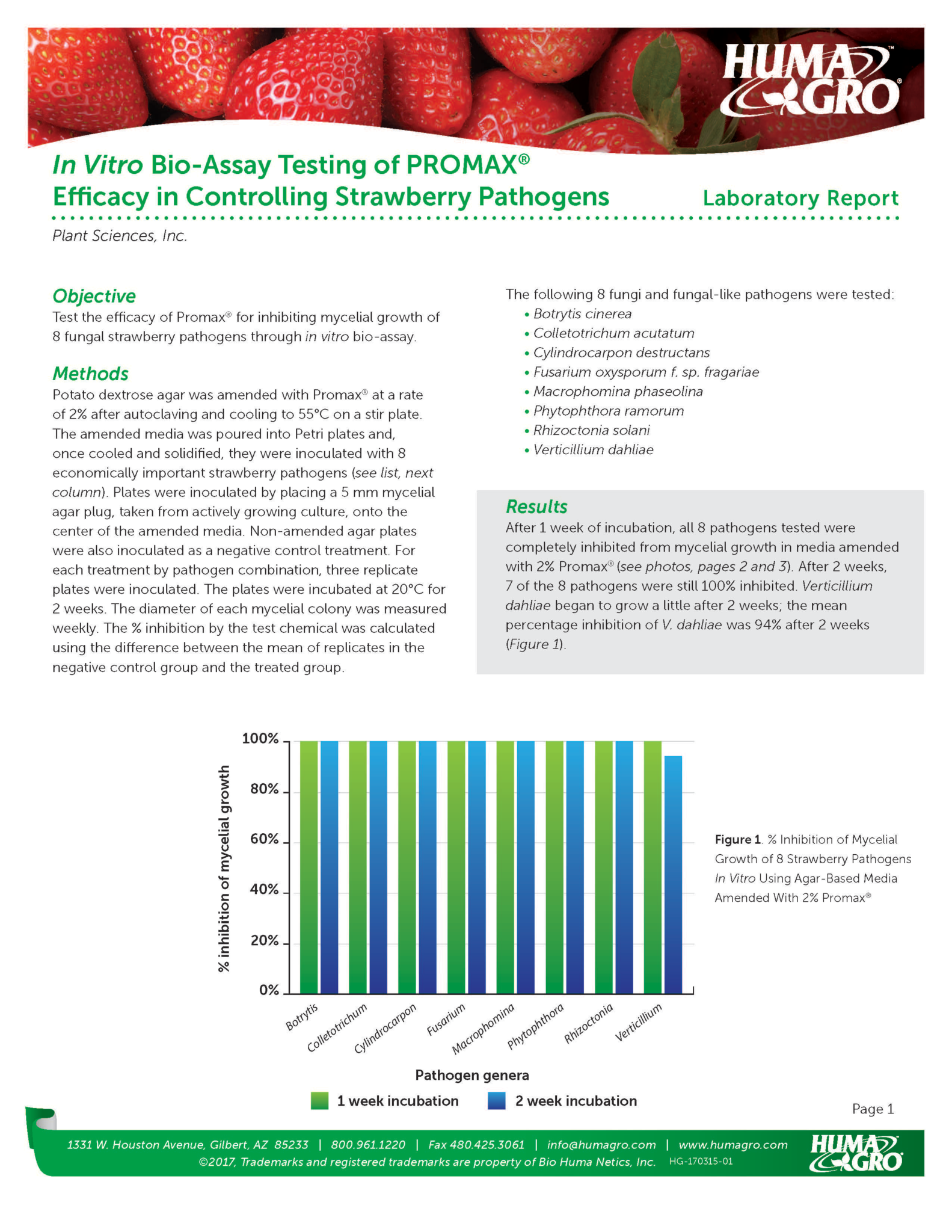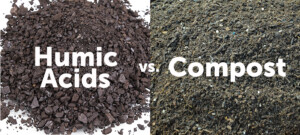
Botrytis cinera
Colletotrichum acutatum
Cylindrocarpon destructans
Fusarium oxysporum f. sp. fragariae
Macrophomina phaseolina
Phytophthora ramorum
Rhizoctonia solani
Verticillium dahlia
After 1 week of incubation, all 8 pathogens tested were completely inhibited from mycelial growth in media amended with 2% Promax® (see photos, pages 2 and 3). After 2 weeks, 7 of the 8 pathogens were still 100% inhibited. Verticillium dahlia began to grow a little after 2 weeks; the mean percentage inhibition of V. dahliae was 94% after 2 weeks (Figure 1).
Read the full report:
View Online Download PDF
Related Posts

Huma Gro Program Increases Sweet Potato Yields 39% with a 10:1 ROI
Conducted by: Dr. K. Bruce Kirksey, AgriCenter International, Memphis, Tennessee Huma Gro® Products: Jackpot®, Calcium, Super Potassium®, Zap® OBJECTIVE This field trial was conducted in order to compare sweet potato crop yields and return on investment (ROI) obtained when a Huma Gro® soil product (Zap®, for feeding soil biology and improving soil fertility) and 2

Humic Acids vs. Compost
Two of the most common methods used for rapidly increasing soil organic matter and improving soil biology are to add compost or to add humic substances. There are pros and cons with each.

Rye: A Popcorn Farmer’s Experience with Cover Crops
Nebraska farmer Dan Hilger recently incorporated rye into his corn and soybean crop rotation. Cover crops are a natural addition to Dan’s farming methods, which include minimum tillage and biostimulant inputs (Huma Gro® products). These practices increase soil health, reduce pest and weed pressure, and diversify his income.

